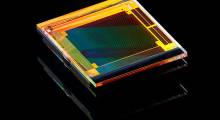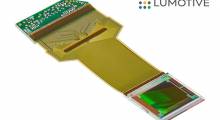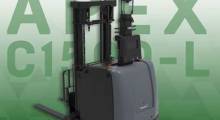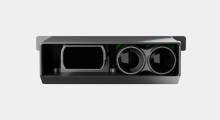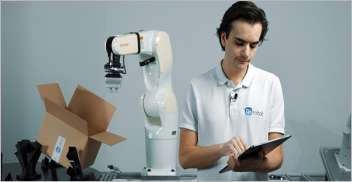Lumotive, a company that specializes in beam-steering chips for advanced 3D optical sensors, and Hokuyo Automatic Co., a producer of sensor and automation technology, today announced a multi-year production contract. This will expedite the deployment of essential sensor technology in robotics and autonomous systems, said the partners.
“Securing a design win of this stature is a notable accomplishment, and we are eager to move forward with Hokuyo Automatic in incorporating our LCM technology into our first industrial automation application,” stated Dr. Sam Heidari, CEO of Lumotive. “This production supply agreement marks an important milestone for Lumotive, as we bring advanced 3D sensing solutions to the robotics and autonomous systems markets.”
Redmond, Wash.-based Lumotive said its optical semiconductor systems enable advanced perception capabilities in products such as mobile devices, autonomous vehicles, and robots. The company claimed that its patented Light Control Metasurface (LCM) beam-steering chips “deliver an unparalleled combination of high performance, exceptional reliability, and low cost — all in a tiny, easily integrated solution.”
Lumotive has received industry recognition including Fierce Electronics' 2021 Startup of the Year award, two CES 2022 Innovation Awards, a 2022 SPIE PRISM Award, and an Edison Award. Its investors include Gates Frontier, MetaVC Partners, Quan Funds, Samsung Ventures, Uniquest, and USAA.
Hokuyo to produce 3D lidar sensor
Hokuyo Automatic said it is preparing to produce a 3D lidar sensor based on Lumotive's M30 reference design targeted for industrial applications. The Osaka, Japan-based company said it expects the new product to surpass conventional mechanical lidar and time-of-flight camera technology.
The sensor will foster progress in automated guided vehicles (AGVs), autonomous mobile robots (AMRs), and other industrial automation, asserted Hokuyo.
“We are impressed with Lumotive's LCM optical semiconductor technology and believe that it will be a game-changer for the industrial automation market,” said Hitoshi Ozaki, president of Hokuyo, in a press release.
“Lumotive's product delivers a new level of miniaturization, performance, and reliability, which will enable us to expand our business with innovative 3D sensing solutions that could not be realized with conventional lidar scanning technology,” he added. “We look forward to working with Lumotive to bring these solutions to market.”
In addition, as part of their partnership, Hokuyo is using Lumotive's top-tier manufacturing partners and engineering expertise to bring their advanced sensing products to market faster. The company said its technologies, distribution network, and services support materials handling and other industrial applications.
Founded in 1946, Hokuyo Automatic said it is a pioneer and a global leader in manufacturing sensors for factory, logistics, and process automation. Its products include collision-avoidance sensors, safety laser and obstacle-detection scanners, optical data-transmission devices, laser rangefinders or lidar, and hot-metal detectors.
Hokuyo has about 2% share of the industrial lidar market, according to YOLE Intelligencer.
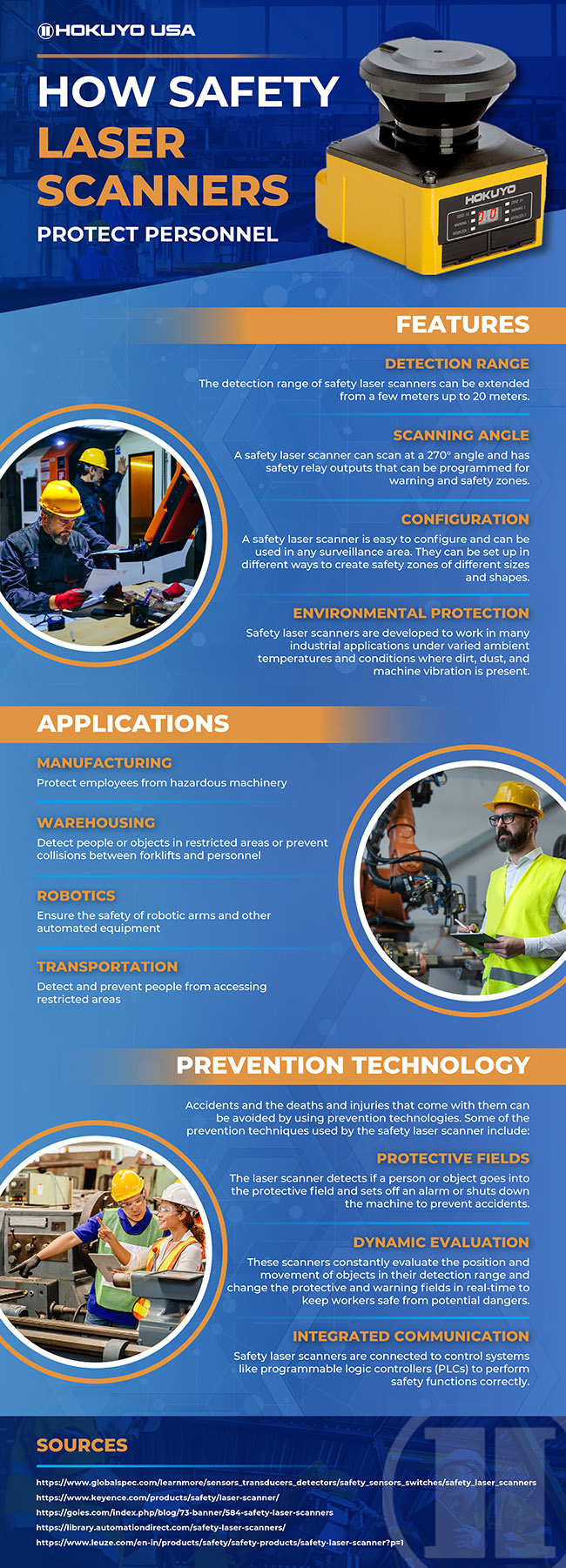
Lumotive offers accuracy, affordability
Hokuyo Automatic said it chose Lumotive's LCM technology for its digital beam-steering capabilities, which enable the company to produce 3D sensors that are more accurate, reliable, and cost-effective than current offerings.
Lumotive claimed that its patented technology, based on well-established semiconductor manufacturing technology, “delivers the world's first solid-state metasurface beam steering chips ready for mass production.” The company said its LCM chips offer significant benefits to industries including consumer electronics, industrial automation, and autonomous vehicles.
Solid-state 3D lidar sensors using Lumotive technology can provide a large field of view and extended range in a compact form, it explained. This allows for seamless integration into diverse machinery, from robotics to conveyor systems, said Lumotive.
LCM's “superior outdoor performance ensures reliable operations, even in expansive outdoor industrial sites or warehouses with challenging lighting conditions,” the company asserted. Its software-defined scan modes enable customization to specific tasks, such as precise object tracking on production lines or efficient navigation for AMRs.
In addition, Lumotive said its system is able to minimize interference and multipath effects, resulting in better point-cloud quality, which is crucial for accurate sensing in complex industrial environments.
Article topics
Email Sign Up




